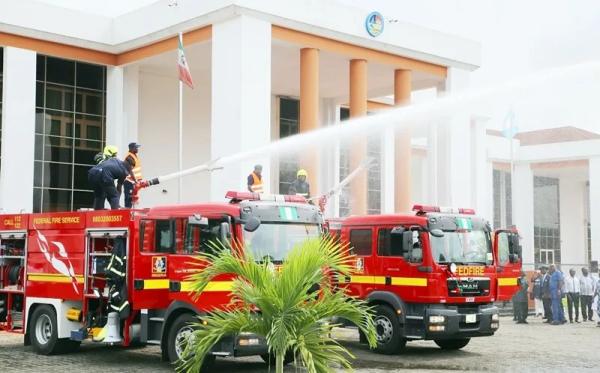
As reactions continue to trail the release of the full audit report of the Nigerian National Petroleum Corporation, industry experts have said a thorough audit of the process and operations of the NNPC needs to be carried out as the audit failed to show that revenue from condensates was accounted for, ’FEMI ASU writes
The final report on the forensic audit into allegations of unremitted funds into the Federation Account by the NNPC made no clear mention of the amount the nation generated from condensates between January 2012 and July 2013, the review period.
Nigeria, Africa’s top oil producer, produces roughly about 250,000 to 300,000 barrels per day of condensates, which occur in substantial quantities in oil and gas fields.
The condensate market, which is valued at over $1.5bn (N296bn based on a rate of N197 to a dollar) is from Akpo, Oso and several other small fields. Sometimes it is blended into other heavy crude grades to reduce the gravity and improve the market value.
It typically sells for about the same price as normal crude oil or often times higher, and sometimes it is exported directly.
A top industry player, who pleaded not to be named as his company has a relationship with the NNPC, said the audit report by PricewaterhouseCoopers clearly showed that the country needed a proper and transparent oil revenue management authority.
“The failings of the report in itself were a candid reflection of the failings of the organisation (NNPC) itself. There are several figures that don’t add up; even the auditors mentioned this.
“Furthermore, the auditors completely overlooked the over $1.5bn condensate market – no mention of the revenues or expenditure of revenue from this space. I suspect this was largely due to the narrow scope of work given to them and the paucity of materials/information sources.”
The President, Nigerian Association for Energy Economics and Director, Centre for Petroleum, Energy Economics and Law, University of Ibadan, Prof. Adeola Adenikinju, said the revelations from the PwC report confirmed the concerns expressed by most Nigerians about the opaque nature of the NNPC operations and the fact that the regulatory framework in the oil sector lagged behind global best practices.
“The dependence on secondary information sources to generate the initial report by the PwC suggests that effective and thorough audit of the process and operations of the NNPC was not carried out to enable the firm to turn out an unqualified report,” he stated.
PwC was last year hired by the Federal Government to carry out the forensic audit of the NNPC following an allegation by the former Governor of the Central Bank of Nigeria, Lamido Sanusi, that $49bn was not remitted to the Federation Account by the corporation.
Stating that the report underscored the fact that the reform of the entire sector was long overdue, Adenikinju said, “It is a shame that the Petroleum Industry Bill is yet to be passed. The original PIB provided for a very robust restructuring of the NNPC and transforming the corporation into a real commercial entity that is subject to the dictates of the market in terms of its governance, operational and institutional structure.”
The PwC report and the issues it threw up imply that the incoming administration may have to conduct a fresh forensic audit to establish the veracity of the claims against the NNPC, he said.
“The power of the Minister of Petroleum Resources on the day-to-day operations of the corporation has drained life, competence, efficiency and effectiveness out of the corporation. Things have got to change and immediately if the NNPC will compare with other National Oil Companies in other oil producing countries.”
In the full report made available by the government last week, the PwC auditors said they did not have access to the full accounts and records of the Nigerian Production Development Company, a subsidiary of the NNPC.
“We have not ascertained the amount of costs and expenses, which should be applied to the $5.11bn crude oil revenue (net of royalties and Petroleum Profit Tax paid) per the NPDC submission to the Senate committee, which should be considered as dividend payment by the NPDC to the NNPC for ultimate remittance to the Federation Account,” they said.
The NPDC has carried out exploration and production operations since 1988 and has also been assigned assets by the NNPC following the divestment by some joint venture partners between 2010 and 2011.
“I am not sure much value can be derived from the audit report in my opinion, and I think they said that much in their disclaimer. It is too much of an ad-hoc report to serve a purpose as defined by those who gave out the contract,” the Director, Emerald Energy Institute, University of Port Harcourt, Prof. Wumi Iledare, said in an emailed response to questions.
“Perhaps you may ask, is the NPDC part of the equation, which led to the PwC audit? If no, then the report is inconsequential if an important subsidiary of the NNPC was not engaged in the audit process,” he noted.
Iledare, who is a Chirota and Emmanuel Egbogah Distinguished Professor, said a lot more had yet to be unfolded about the NNPC and its subsidiaries.
He said, “But, it is not much about the NNPC but its board and the composition of it. The NNPC workers are the finest you can ask for, dedicated and diligence, in my opinion. However, what the NNPC lacks is a workable governance structure. For example, a situation where the interests of the minister of petroleum matters much more than national interests do not give room for rational thinking.
“For example, outside the structure as per the NNPC Act, 1977, the current minister installed a deputy group managing director on the structure and often side-lined the GMD. Did PwC discuss the audit report of the NNPC with GMD or DGMD before releasing it to the public? I bet, they discussed it with the DGMD and not the GMD. How can you audit a corporation without even talking to the GMD?”
Citing what happened in Saudi Arabia recently, Iledare said the NNPC must be removed completely from under the influence of the minister as suggested in the jettisoned 2008 version of the PIB.
On the significant discrepancies in data from different sources, including the NNPC and the Department of Petroleum Resources, which the auditors noted, the Professor Emeritus at the Centre for Energy Studies, Louisiana State University, United States, said, “As a nation, we tend not to pay attention to the importance of data and information for planning.
“I am shocked that such discrepancies could be allowed to persist. What I would have expected is to have an inter-agency team reconciling data and information collected periodically.”
The PwC auditors said in the report that the accounting and reconciliation system for crude oil revenues used by government agencies appeared to be inaccurate and weak.
They recommended that the NNPC model of operation should be urgently reviewed and restructured, as the current model, which had been in operation since the creation of the corporation, could not be sustained.






















